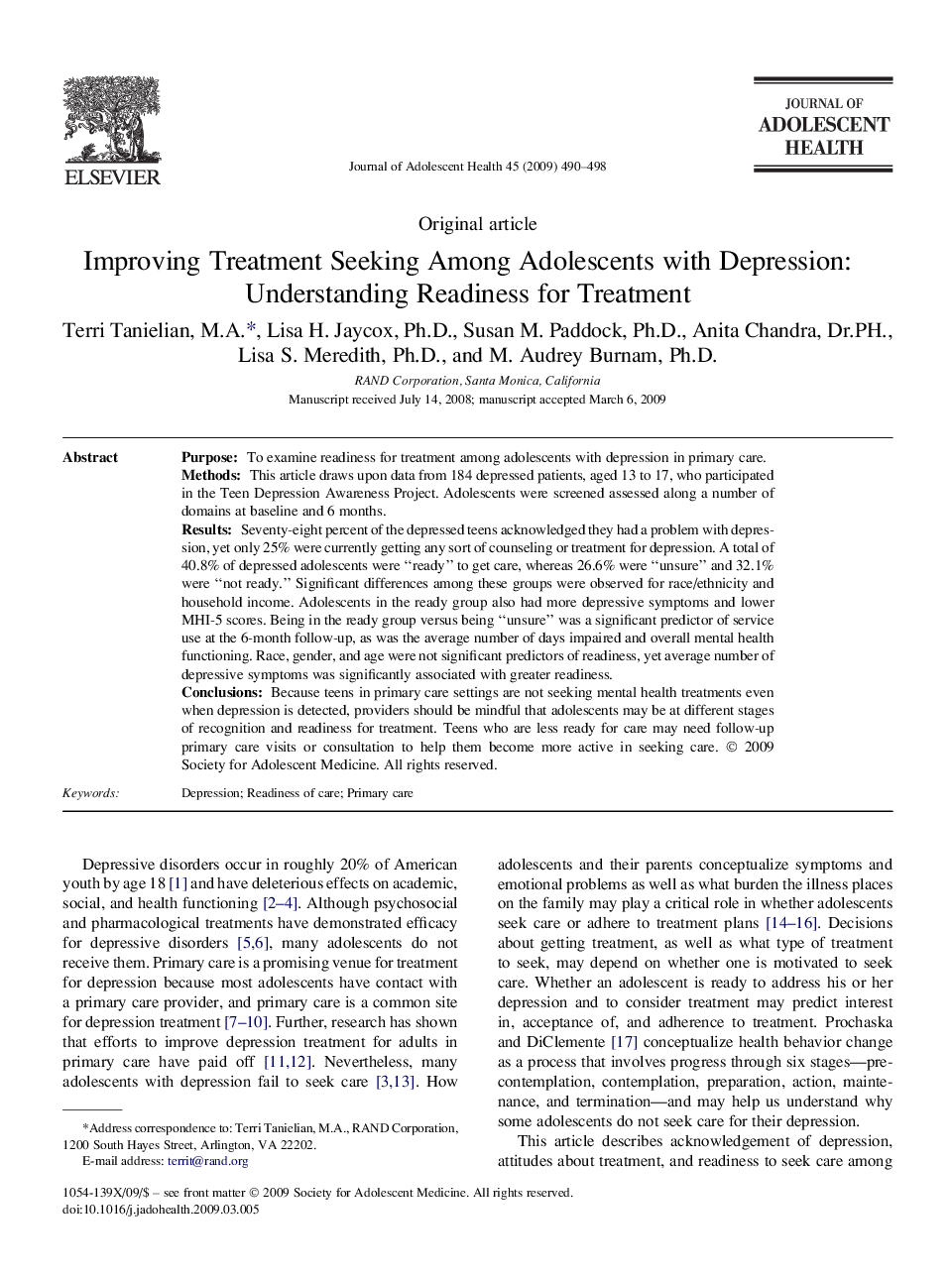| Article ID | Journal | Published Year | Pages | File Type |
|---|---|---|---|---|
| 1079366 | Journal of Adolescent Health | 2009 | 9 Pages |
PurposeTo examine readiness for treatment among adolescents with depression in primary care.MethodsThis article draws upon data from 184 depressed patients, aged 13 to 17, who participated in the Teen Depression Awareness Project. Adolescents were screened assessed along a number of domains at baseline and 6 months.ResultsSeventy-eight percent of the depressed teens acknowledged they had a problem with depression, yet only 25% were currently getting any sort of counseling or treatment for depression. A total of 40.8% of depressed adolescents were “ready” to get care, whereas 26.6% were “unsure” and 32.1% were “not ready.” Significant differences among these groups were observed for race/ethnicity and household income. Adolescents in the ready group also had more depressive symptoms and lower MHI-5 scores. Being in the ready group versus being “unsure” was a significant predictor of service use at the 6-month follow-up, as was the average number of days impaired and overall mental health functioning. Race, gender, and age were not significant predictors of readiness, yet average number of depressive symptoms was significantly associated with greater readiness.ConclusionsBecause teens in primary care settings are not seeking mental health treatments even when depression is detected, providers should be mindful that adolescents may be at different stages of recognition and readiness for treatment. Teens who are less ready for care may need follow-up primary care visits or consultation to help them become more active in seeking care.
